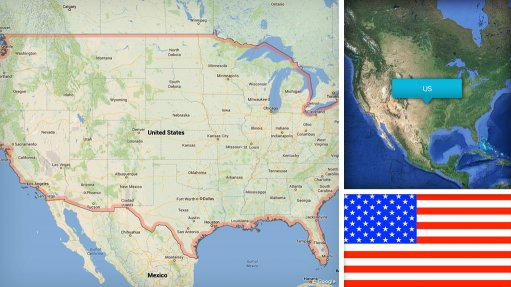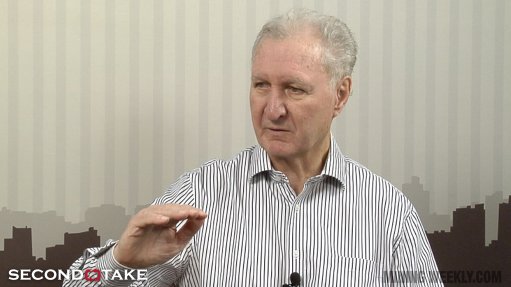DCDT to establish artificial intelligence advisory panel
The Department of Communications and Digital Technologies (DCDT) is preparing to establish an artificial intelligence (AI) expert advisory council as it moves to shape the policies and regulations around AI adoption and development in South Africa.
To kick off the process, the department hosted a National AI Government Summit earlier this month to unpack a discussion document and guide the development and adoption of an AI-focused national plan in South Africa.
In line with this, an AI expert advisory council comprising a group of eminent persons, who will be appointed in due course, will guide the country towards the implementation and development of AI policy and regulation, besides others, says Communications and Digital Technologies Minister Mondli Gungubele.
In the interim, Gungubele has appointed Professor Vukosi Marivate to head an AI task force that, together with the department, will recommend appropriate AI experts suitable for appointment to the council.
It is expected that, following the national summit, which aimed to establish a clear way forward to leverage technology to resolve some of South Africa’s economic and social challenges, a series of provincial seminars will be held to seek further input during the public comments process before the draft National AI Policy is finalised as a guiding policy document.
“We have witnessed several AI initiatives around the country emanating from government, the private sector, academia and civil society . . . and decided that the best approach is to devise a plan that would encompass all,” Gungubele says.
“The plan is to ensure that all the AI key role-players can agree on the national priorities and objectives that will ensure our prosperity and growth through the adoption of AI.”
He points to the documented economic benefits of AI adoption, citing as an example a study, conducted by the Access Partnership, which found that South Africa, Nigeria, Ghana and Kenya, through the adoption and use of AI, can attract benefits valued at about $136-billion.
However, public policymaking and frameworks must adapt to address the governance imperatives of AI and emerging technologies to protect globally agreed human rights.
“The explosion of AI as a greater technology tool has placed a responsibility on all of us to ensure that we realise its maximum innovative potential and make its use safe and ethical for all,” he says, noting that AI policies are key to building a strong digital ecosystem in which governments, businesses and individuals can reap the benefits.
“For us to remain a relevant trading partner that protects and advances its national interests, we need to be among the rest of early starters in the production and adoption of digital technology solutions to human problems.”
“The South African government is now outlining key government AI priorities and putting up some deadlines that would ensure that we are not left behind in the AI global race. We understand that this phase of AI will grow in leaps and bounds and we will always be guarding against the negative aspects and harness the positive ones and make the African continent a success story,” he continues.
In addition to the establishment of an AI Ministerial advisory council or an AI panel of experts, the National AI Government Summit Discussion Document outlines that government is aiming to focus on human capital development; localised AI solutions; reinforced collaboration with academia and industry; and capacitating the Artificial Intelligence Institute of South Africa (AIISA), which was established in November 2022.
The AIISA has since established several applied AI hubs with key stakeholders such as academia, the private sector, investors and civil society, starting with the first AI Hub at the University of Johannesburg focused on manufacturing, owing to its sizeable contribution to gross domestic product of nearly 14%.
In line with its focus on ensuring the key economic sectors are first to leverage AI capabilities, a second AI hub was established at the Tshwane University of Technology, focusing mainly on the automotive sector, owing to the vastness of vehicle production and assembly in South Africa.
Further, an AI hub focused on agriculture and farming will be launched at the Central University of Technology, in the Free State, along with an AI hub focused on defence and military capabilities at the Military Academy, in Saldanha, Western Cape, before the end of May.
“In total, we would like to capacitate the AIISA with at least 11 AI hubs ranging from the built environment, the just energy transition, health, media and languages, besides others.”
According to the AI Summit discussion document, government also aims to develop various regulations on AI applications, data computing, AI industries, AI copyrights and patents, the protection of intellectual property, unfair competition and AI standards regulations.
Additional focus areas include data architecture systems in key sectors; creating a data collaborative space in Africa; an AI policy and legislation process; and an AI Maturity Assessment Framework for South Africa.
“With the right mix of policies, Africa and its citizens can reap the benefits of AI in years to come,” says Gungubele.
He further comments on countries differing in how they are addressing AI as a general- purpose technology, in terms of continental, regional and national circumstances.
“Various permutations range from seeing AI as a tool that will bring goodness to humans as outlined by the International Telecommunication Union, or AI being able to bring prosperity for humans’ rights according to the United Nations AI Task Force, or AI challenging human ethical foundations.
“Ours as South Africa is guided by the Presidential Commission on the Fourth Industrial Revolution report which looks at AI as a technology tool that will advance our social and economic prosperity.”
Comments
Press Office
Announcements
What's On
Subscribe to improve your user experience...
Option 1 (equivalent of R125 a month):
Receive a weekly copy of Creamer Media's Engineering News & Mining Weekly magazine
(print copy for those in South Africa and e-magazine for those outside of South Africa)
Receive daily email newsletters
Access to full search results
Access archive of magazine back copies
Access to Projects in Progress
Access to ONE Research Report of your choice in PDF format
Option 2 (equivalent of R375 a month):
All benefits from Option 1
PLUS
Access to Creamer Media's Research Channel Africa for ALL Research Reports, in PDF format, on various industrial and mining sectors
including Electricity; Water; Energy Transition; Hydrogen; Roads, Rail and Ports; Coal; Gold; Platinum; Battery Metals; etc.
Already a subscriber?
Forgotten your password?
Receive weekly copy of Creamer Media's Engineering News & Mining Weekly magazine (print copy for those in South Africa and e-magazine for those outside of South Africa)
➕
Recieve daily email newsletters
➕
Access to full search results
➕
Access archive of magazine back copies
➕
Access to Projects in Progress
➕
Access to ONE Research Report of your choice in PDF format
RESEARCH CHANNEL AFRICA
R4500 (equivalent of R375 a month)
SUBSCRIBEAll benefits from Option 1
➕
Access to Creamer Media's Research Channel Africa for ALL Research Reports on various industrial and mining sectors, in PDF format, including on:
Electricity
➕
Water
➕
Energy Transition
➕
Hydrogen
➕
Roads, Rail and Ports
➕
Coal
➕
Gold
➕
Platinum
➕
Battery Metals
➕
etc.
Receive all benefits from Option 1 or Option 2 delivered to numerous people at your company
➕
Multiple User names and Passwords for simultaneous log-ins
➕
Intranet integration access to all in your organisation

















